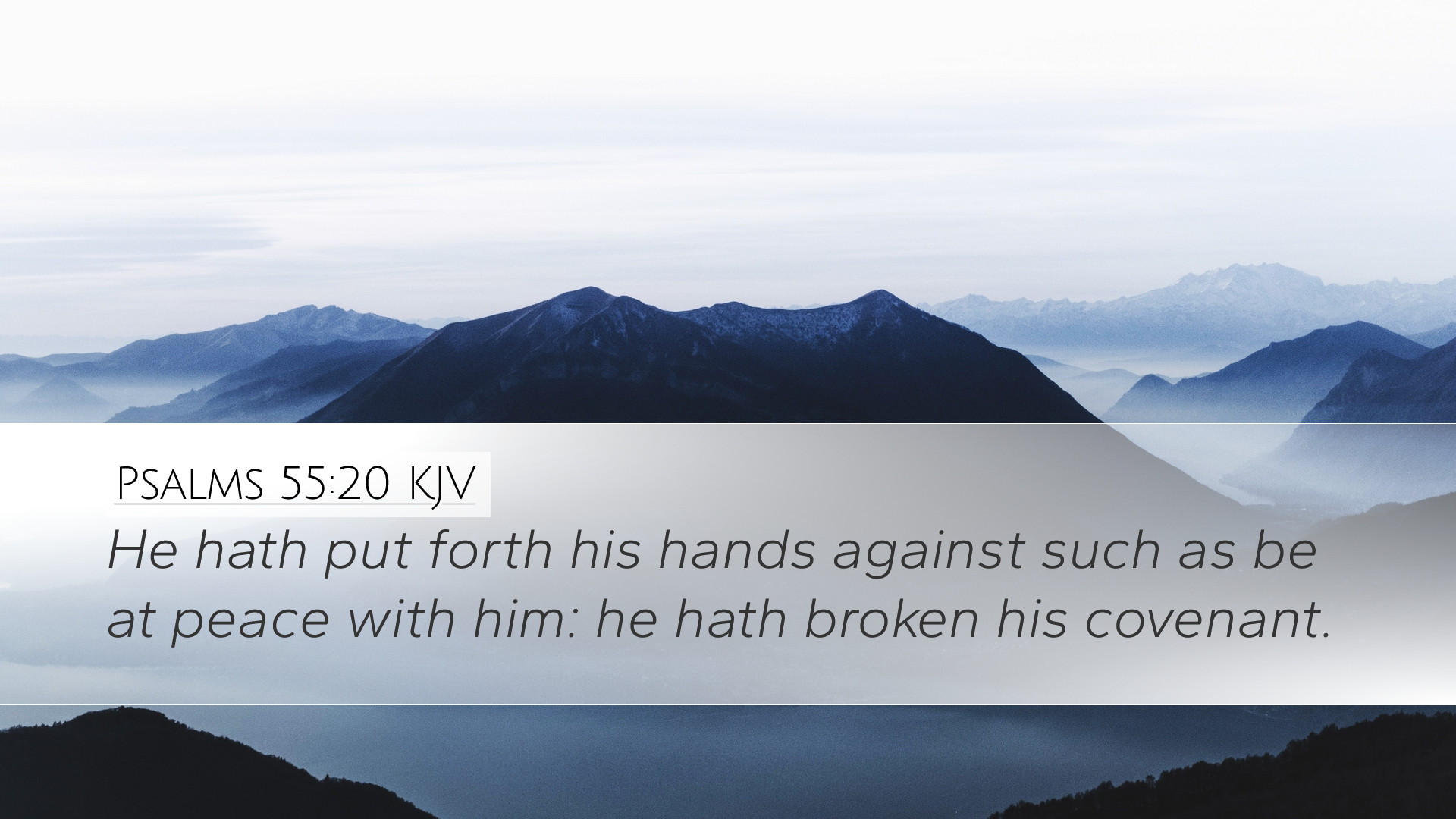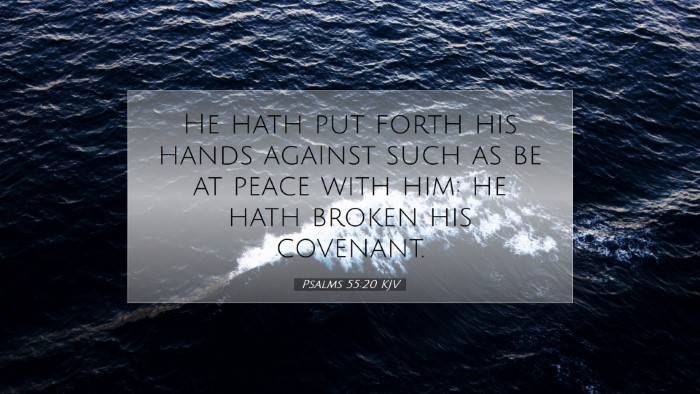Psalms 55:20 Commentary
Verse: "He hath put forth his hands against such as be at peace with him: he hath broken his covenant."
Overview and Context
The 55th Psalm is attributed to David, expressing profound anguish and betrayal. It is a heartfelt cry for deliverance from treachery and internal distress. The psalmist’s experience resonates with many who have faced similar feelings of abandonment and deception. This verse specifically draws attention to the pain of broken relationships and the anguish that betrayal brings.
Commentary Insights
Matthew Henry's Commentary
Matthew Henry emphasizes the emotional turmoil of David as he laments the betrayal from someone close. The use of the phrase "put forth his hands" serves as a metaphor for violent actions against the innocent. Such intimacy in betrayal is perhaps one of the most painful experiences, highlighting the depth of false friendship. David laments that this betrayal comes from someone who was once in peace with him. The breaking of a covenant was a serious sin in the ancient world; it represented not just a personal loss but a breach of societal and spiritual trust.
Albert Barnes' Commentary
Albert Barnes points to the broader implications of this verse, noting that the betrayal referenced is not merely personal but can reflect the condition of society when leaders and confidants fail to uphold promises. Barnes interprets the act of breaking a covenant as indicative of moral decay and highlights the importance of fidelity within relationships. The mention of peace suggests that such betrayal often emerges from those thought to be allies, making it all the more treacherous. He also suggests that this predicament leads the faithful to seek refuge in God, who is ultimately the keeper of all covenants.
Adam Clarke's Commentary
In Adam Clarke’s perspective, the emphasis on "peace" is crucial. It reflects the trust and harmony that were once present in the relationship between David and his betrayer. Clarke suggests that this distress may refer to Ahithophel, who once enjoyed favor and was a confidant to David but later turned against him. Clarke elaborates on the theme of divine justice, suggesting that the betrayals we face will ultimately be redeemed by God, who knows the hearts of all men and will execute judgment on the unfaithful.
Theological Implications
This verse serves as a profound reminder of the nature of betrayal in human relationships. It brings to the forefront the tension between peace and conflict, highlighting how easily relationships built on trust can shatter. For pastors and theologians, it offers an opportunity to address themes of forgiveness and reconciliation. The nature of human relationships is fraught with the potential for betrayal, yet God's fidelity stands in stark contrast. The call to maintain one’s integrity, even amidst betrayal, is a significant lesson derived from David's anguish.
Applications for Pastors and Theologians
-
Preaching on Betrayal and Trust:
Explore the dynamics of trust in relationships, emphasizing the need for honesty in community life and the church.
-
Covenantal Relationships:
A study on the significance of covenants in the biblical narrative can enrich congregational understanding of fidelity and commitment.
-
God’s Faithfulness:
Encourage believers to reflect on God's unwavering faithfulness in the face of human betrayal, illustrating how divine faithfulness can restore broken relationships.
Conclusion
Psalms 55:20 serves as a vital meditation on the human condition, emphasizing the real and painful experiences of betrayal. It invites readers into a deeper understanding of the complexities of relationships. By drawing from the insights of Matthew Henry, Albert Barnes, and Adam Clarke, pastors and scholars can cultivate a rich and informed discourse on the themes of trust, integrity, and divine justice in a world often marked by treachery.


